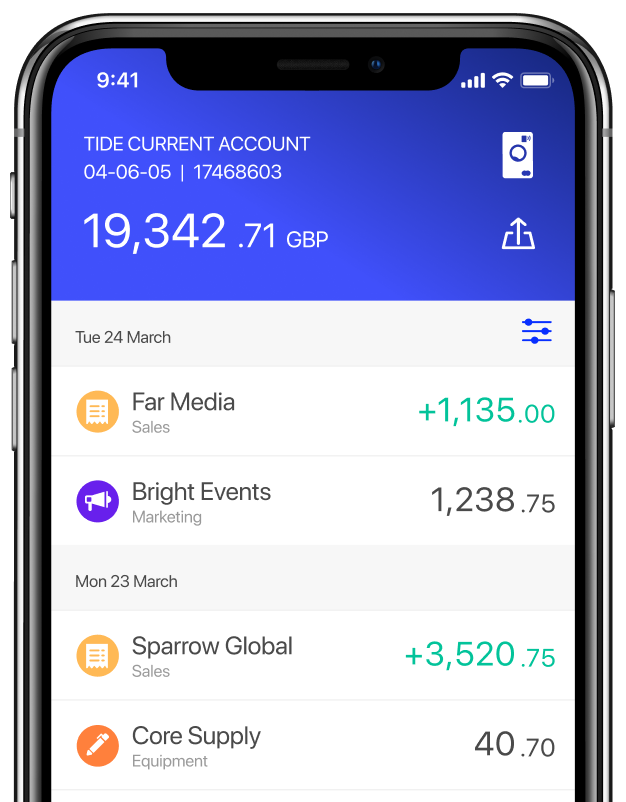
APP fraud: How to beat a common scam targeting UK businesses

Fraudsters are on the move in the UK. Authorised push payment (APP) fraud has become one of the most popular tricks in their books in recent years. In fact, the latest figures from UK Finance reveal that £249.1 million was lost to this type of fraud in the first 6 months of 2022, with £40.5 million of this lost by businesses and in other non-personal cases.
Get ahead of the fraudsters by learning some of their tricks and techniques, as explained below. The more you know about APP scams, the less likely you are to fall victim to one 🙌
What is APP fraud?
APP fraud, also known as bank transfer fraud, is when a fraudster tricks someone into making large bank transfers to them under false pretences.
For example, they may pretend to be someone from an organisation that you trust and contact you claiming that you’ve been a victim of fraud. Then, they’ll tell you to move your money into a new bank account – which they control.
Often, APP fraudsters will demand that the transfer be made urgently, so you don’t have time to question their legitimacy. By the time you realise you’ve been scammed, it’s likely that the money has been moved on, making it difficult for it to be traced and reimbursed.
Red flags that could mean you’re being targeted by fraudsters 🚩
An APP fraud attempt can happen via a call, email, social media message, or any other form of communication.
Look out for warning signs such as:
- “A bank” asking you to move your money into another account. Please note that Tide, or any other financial institution, will never ask you to move your funds to safeguard them
💡Tip We’ll never ask you for certain information, such as your card number or login details. Find out how to know it’s really us contacting you in our blog post: Keep your business safe – what Tide will never ask you
- “HMRC” or “the police” threatening you with prosecution if you don’t make a payment. No government organisation will do this
💡Tip From phishing to smishing and beyond, criminals often pretend to be HMRC. If you’re ever suspicious about any calls or messages that you get, head to the HMRC section of GOV.UK for support and to find their official contact details.
- A “family member”, “friend” or “colleague” asking for money. Fraudsters often contact individuals from hacked social media accounts, requesting that you transfer money to them to help them out of a difficult situation
- Your “lawyer”, “solicitor” or “mortgage provider” telling you that their payment details have changed. Fraudsters often target people making large payments, such as a house deposit
If you’re ever unsure whether a payment request, change to payment details or any other request is genuine, contact the individual or organisation on a trusted phone number or email address to confirm.
3 ways to protect your business from APP fraud

Aside from being observant, being proactive is key when it comes to protecting your business from APP scams.
Here are a few suggestions to consider:
- Take the time to research 🔎 No bank or organisation will force you into making a payment immediately, so don’t feel like you need to rush. Talk to friends and family, and research online to understand if you might be being scammed. The Take Five website has plenty of impartial advice
- Question who you’re talking to ☝️ If it’s a friend or family member, confirm their identity by asking for details only that individual would know
- Don’t be afraid to say no ❌ Trust your gut – if you’ve got a feeling something may be fraudulent, it likely is. End the contact with the fraudster if anything feels off
How Tide helps protect you from APP fraud
When you make a bank transfer to a fraudster’s account, it’s like paying with cash, meaning there’s a high likelihood we won’t be able to recover the funds for you. That’s why it’s so important to do your best to make sure that the payment you’re making is legitimate.
Some of the fraud protection features included with your Tide account
The following features are additional safety steps that should be used alongside other fraud prevention methods.
- Confirmation of Payee: When you’re making a payment, we’ll verify whether the name, sort code and account number of the person you’re intending to pay matches what their bank holds on file for the account details you’ve entered. Confirmation of Payee is intended to alert you to inconsistencies with your recipient’s details
- 3D Secure: We’ll double-check that it’s not a fraudster trying to make an online payment with your Tide card or your team’s Expense Card(s), by sending you a notification asking you to approve the transaction in your Tide app. Approval only takes a few seconds to complete
- Zero liability protection: Our card issuing partner, Mastercard, won’t hold you responsible for unauthorised transactions made using your Tide card. This is as long as you’ve safely used your card and reported any theft or loss to us as soon as you’re made aware of it. Read more about the policy on Mastercard’s website
- PIN verification: You’ll be asked to enter your PIN for every 6th contactless transaction you make (not including payments made by Apple or Google Pay). You can safely view your PIN number in your Tide app – simply tap the card icon > ‘Show PIN’
- Card spending limits: We’ve set limits to reduce your exposure to fraudsters. The limits are:
- For sole traders: Up to £25,000 per month / £20,000 per day
- For limited companies: Up to £75,000 per month / £20,000 per day
- Card privacy: Your card details are on the back of your Tide card rather than the front. That way, your personal information is hidden away from fraudsters looking over your shoulder
More of our fraud protection work
We’ve joined forces with similar businesses to ours in order to tackle financial crime, as part of the FinTech Financial Crime Exchange (FFE). That’s not all – we also work closely with law enforcement agencies and anti-fraud bodies in different ways. Read more in our blog post: How Tide works with other fintechs to keep you safe.
We’re keen to share what we learn from our industry collaborations with you. As part of this, we team up with industry experts to provide you with regular Masterclasses. Check out Meet the Hacker: How to protect your business.
What to do if you’re a victim of fraud
Contact us as soon as you can to report the scam. We’ll do our best to recover the funds and we’ll warn your fellow small business owners, too.
Photos by Firmbe.com and Krakenimages, published on Unsplash




